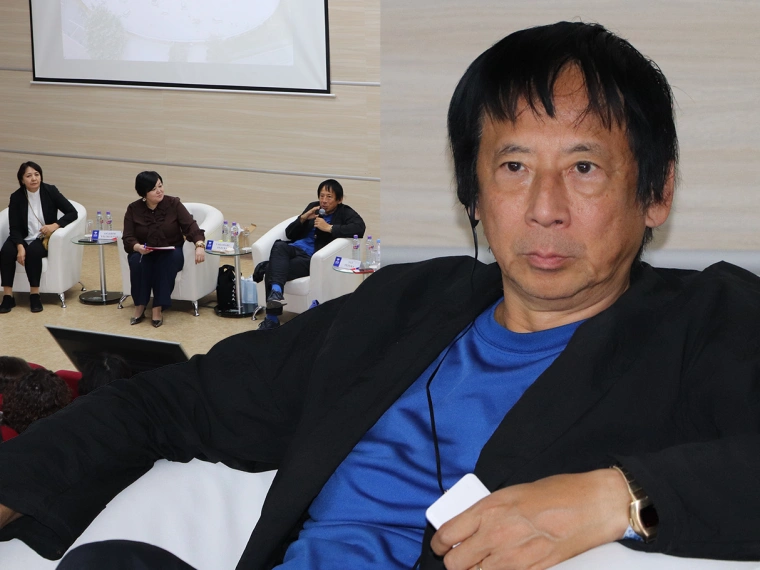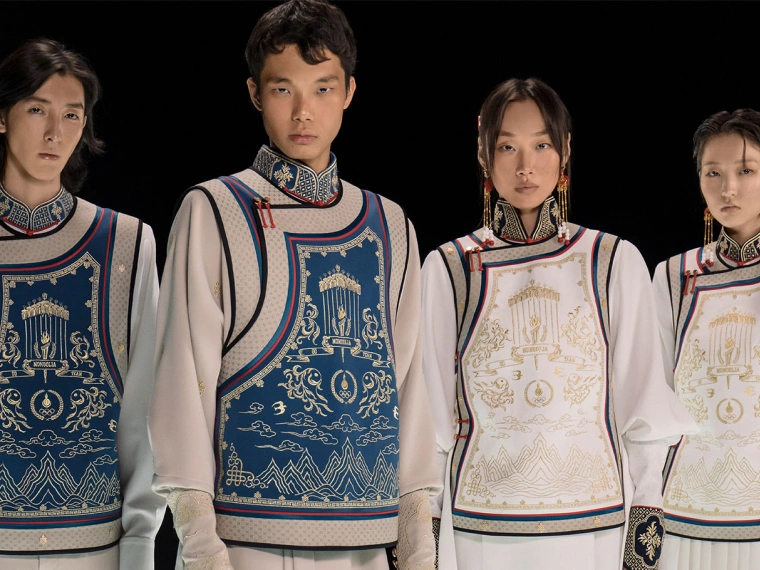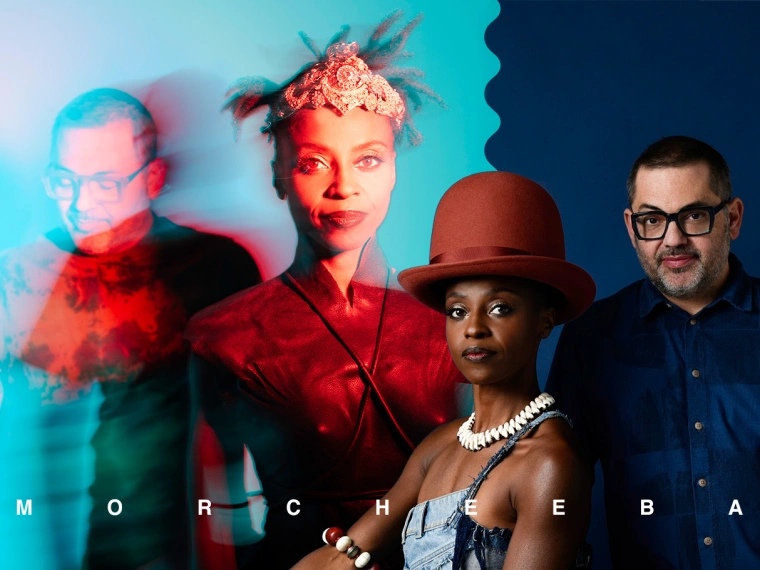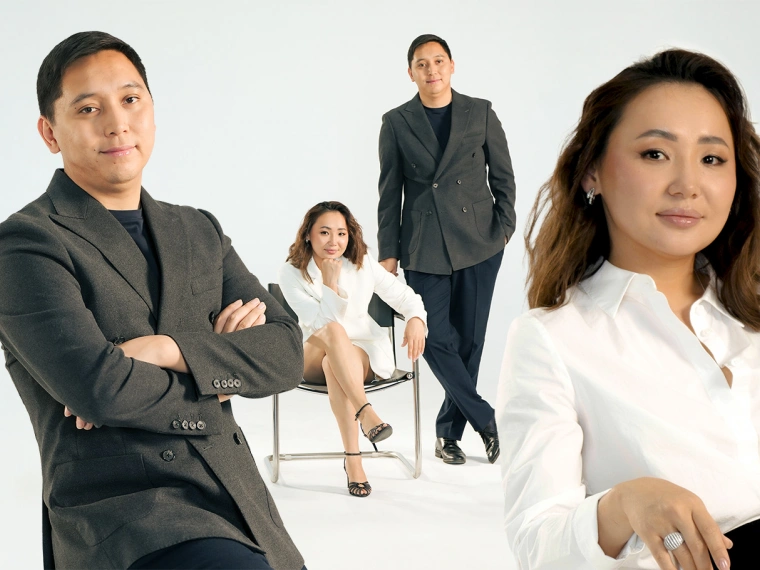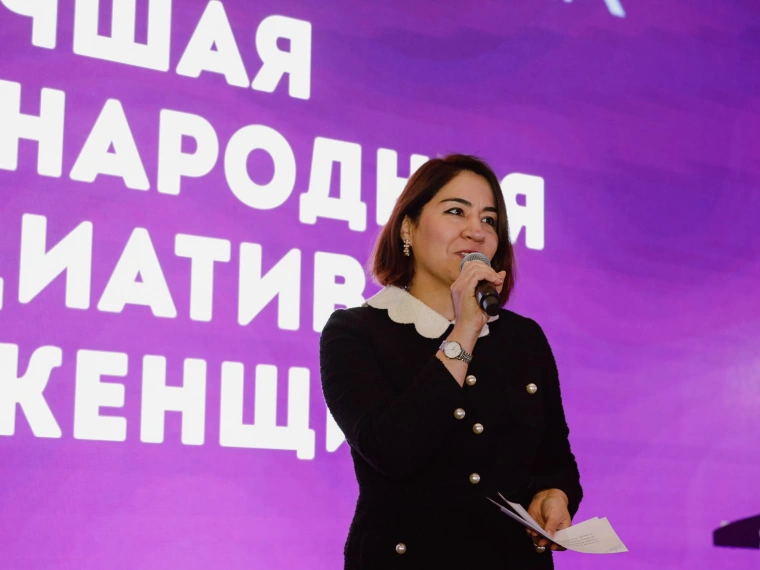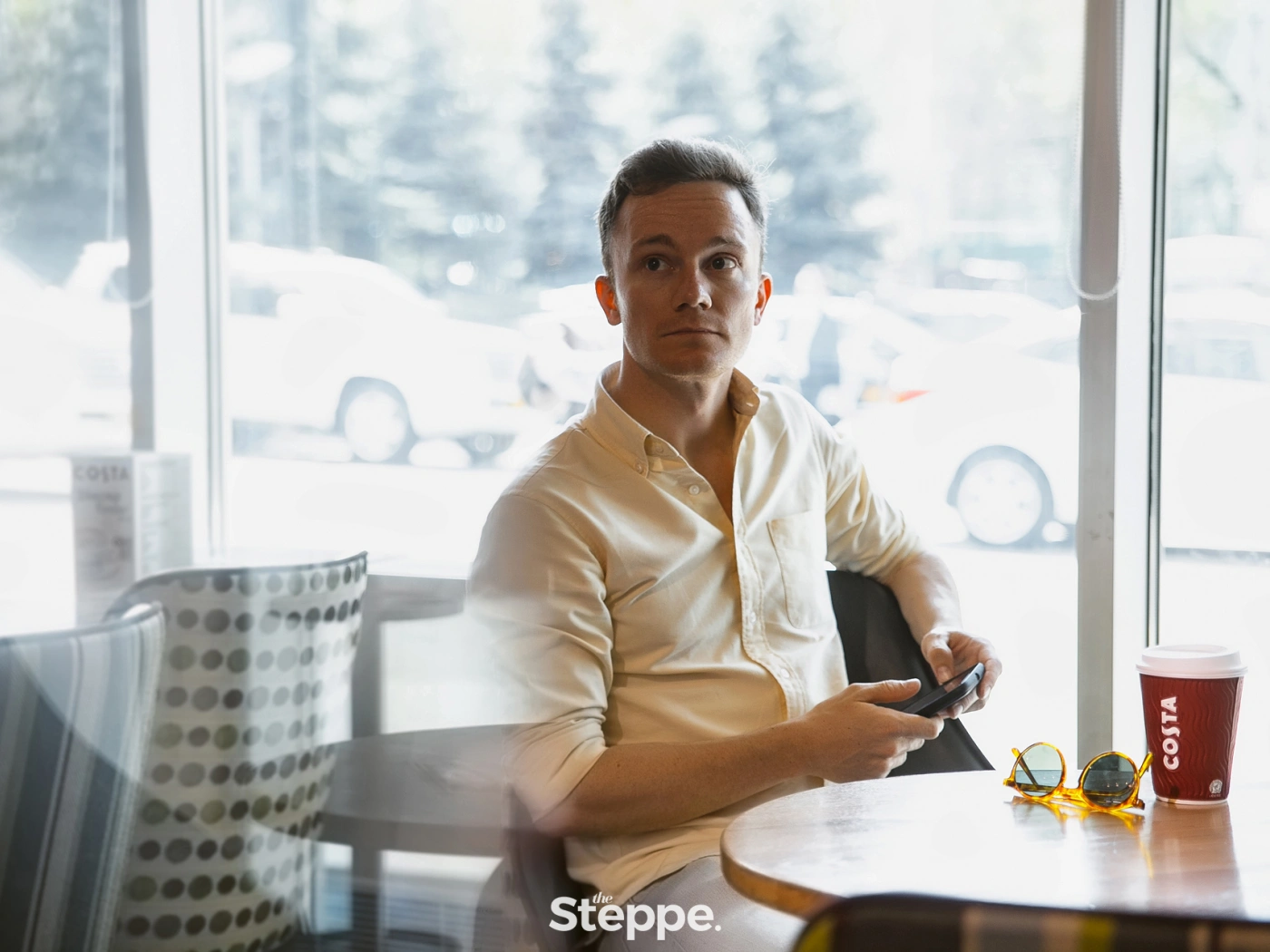
I'm not going back to London: English people about their lives in Almaty
The article is translated from Russian.
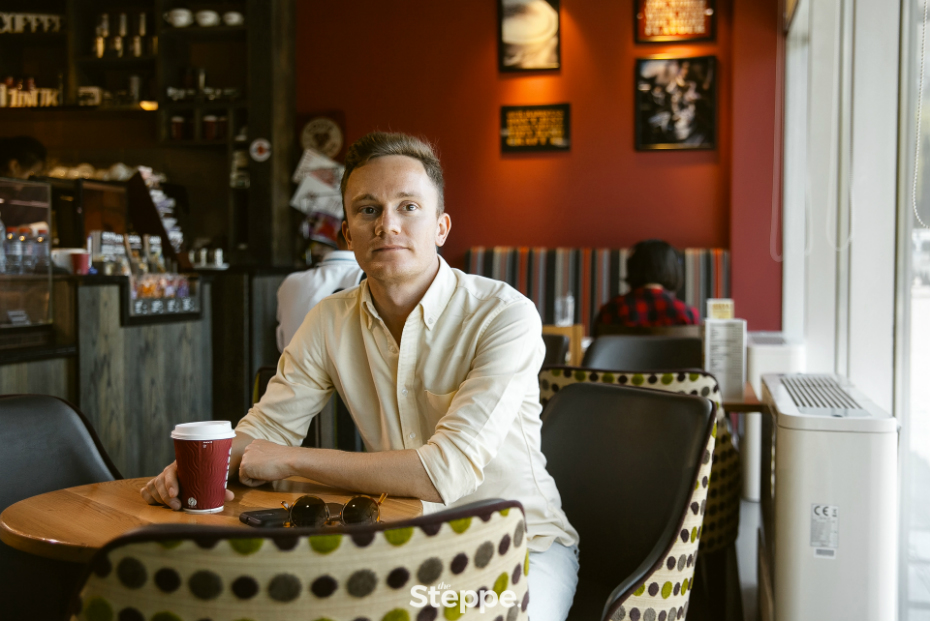
Rowan Kennedy
33 years old, deputy director of the British Council Kazakhstan
My parents have been working abroad as long as I can remember myself, thus I spent all my childhood in Africa, precisely in Malawi and Swaziland. When I and my little brother and sisters grew up, we were sent to a boarding school in England, because it worked well for our education. We visited our family home several times a year on holidays.
My mom and dad have been working in Almaty since 2001 to 2004. I was only seventeen when I and my brother came here in November 2001. We liked it so much that we kept coming back in 2002 and 2003 until our parents moved somewhere else.
We landed in Almaty at two thirty in the morning. It was freezing and I remember seeing white-colored tree trunks. I still don’t understand why they paint trees here. In the morning I opened the curtains and forever fell in love with the mountains. That’s what I remember about my first impression.
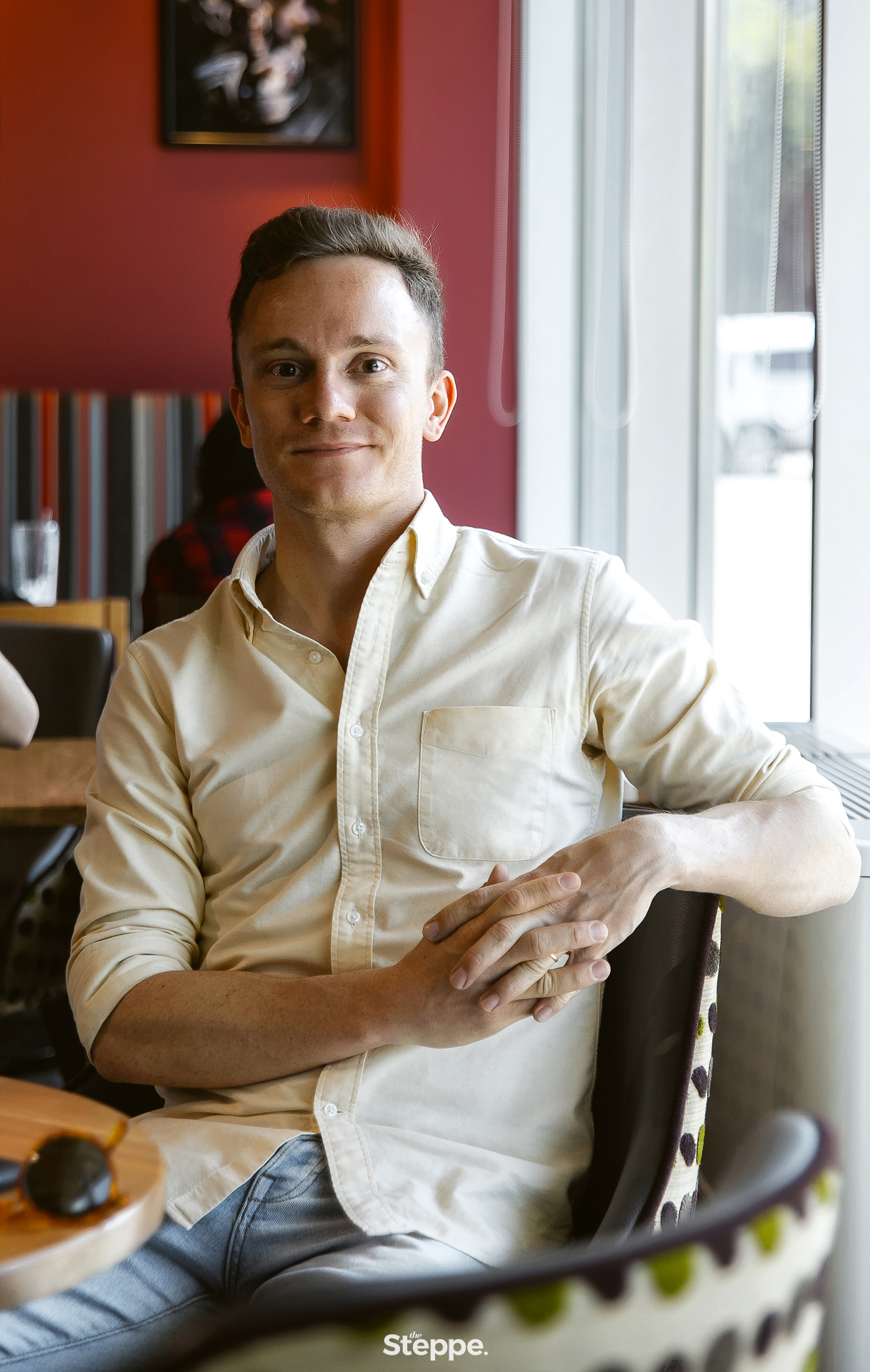
I used to study French and Russian at the University and then after I graduated, I went to Moscow for three months because I wanted to work in a Russian-speaking country. It was hard to get a work visa in Moscow and I also couldn’t find a suitable job. I then found a job in the KIMEP president’s office and moved to Almaty for one and a half years.
When I came back to London I worked in the Ministry of Health Care and PR-agency, until moved to work in the head office of the British Council. After I worked in London for five years, year and a half of which in the British Council, I applied for a job in Almaty. I thought that I would only spend here a year, but I’m still here after three years and have two more. In Kazakhstan, I take care of educational projects that are linked to the social entrepreneurship and English language testing and teaching.
I became really fond of the fruits and vegetables from bazaars. In London, such tasteful products are really hard to find, because everything grows in the greenhouses.
I like how people treat holidays here, still celebrating May the 1st, the Women’s day and the New Year. To me, a holiday is not only a day off but also something that unites people and gives them a chance to feel like a part of the community.
At work, I noticed that people treat sick leaves differently. In England, people generally take sick leaves several times, only if they are really sick. Here, however, sick leaves are very liberal. There is certainly a cultural difference to it. Kazakhstanis take sick leaves for a longer period and more often. Also, people here think that you can catch a cold if you walk at home without slippers. In England, we only use paracetamol and ibuprofen to get better, but here, people take it all a lot more seriously, with antibiotics and drop counters. Some also think that you can treat anything with the help of vodka.

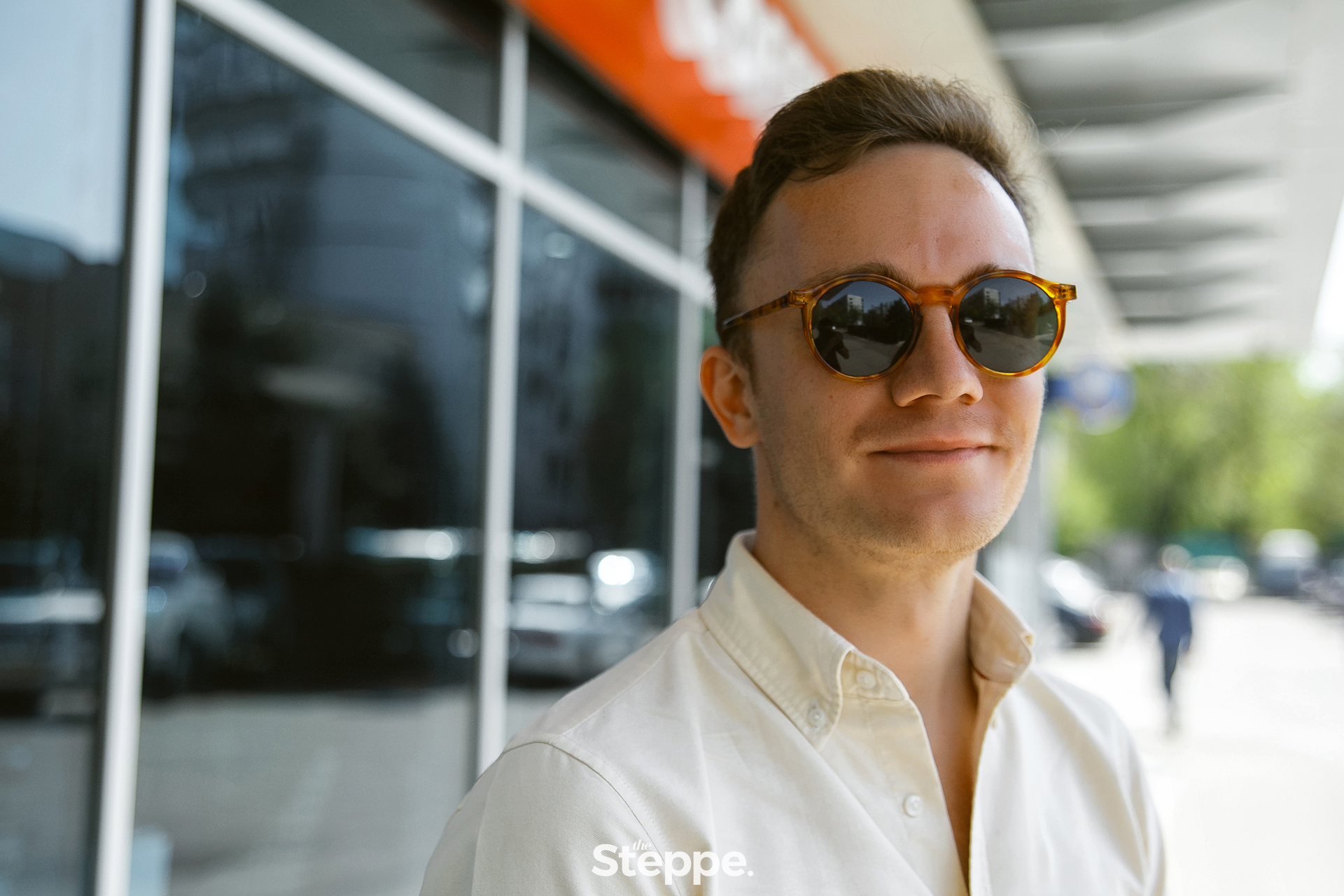
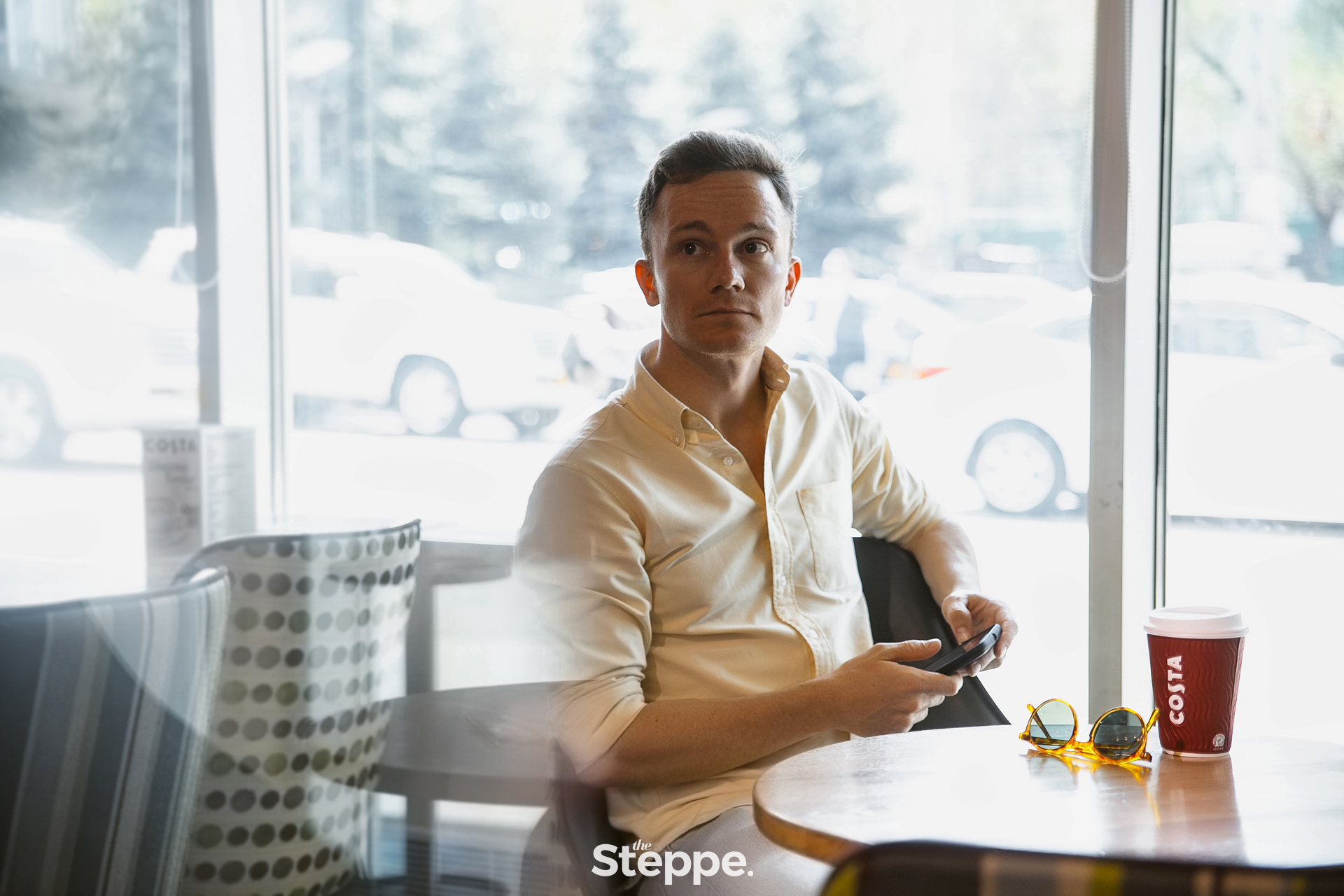
Once I went to Semipalatinsk with my brother and the taxi driver offered to drive us to the polygon. We kindly denied the offer, because it was rather dangerous, but he said that the radiation won’t affect us if we drink 300 grams of vodka.
There are pubs in Almaty that are considered to be English and Scottish, like Shakespeare, Dickens, William Lawson, which, in reality, are too modern to be like those that are in Britain. A true British pub is a very old and stinky place, which you visit only for the sake of social encounters. It is like your second home, you wouldn’t even think of properly dressing up for it. We should all agree on the fact that local English bars aren’t like that. For instance, the «Rocket» bar that was shut down recently was of the same nature like those in the eastern part of London, in Shoreditch, a place with tons of hipsters.
Rowan is a very Scottish name, and Kennedy is a Scottish surname. My father’s ancestors are Scottish, but they have moved to England long ago, so I have a British accent and a world outlook, though without a debate there is something «ginger» about my look.
Five years ago my parents have moved to a little English village one hour away from London with green landscapes, old houses, and ruins of historic fortresses. I had to visit them three times to see at least one black person. It’s a very boring, traditional English town, that differs a lot from the cosmopolitan London, that I consider my home.
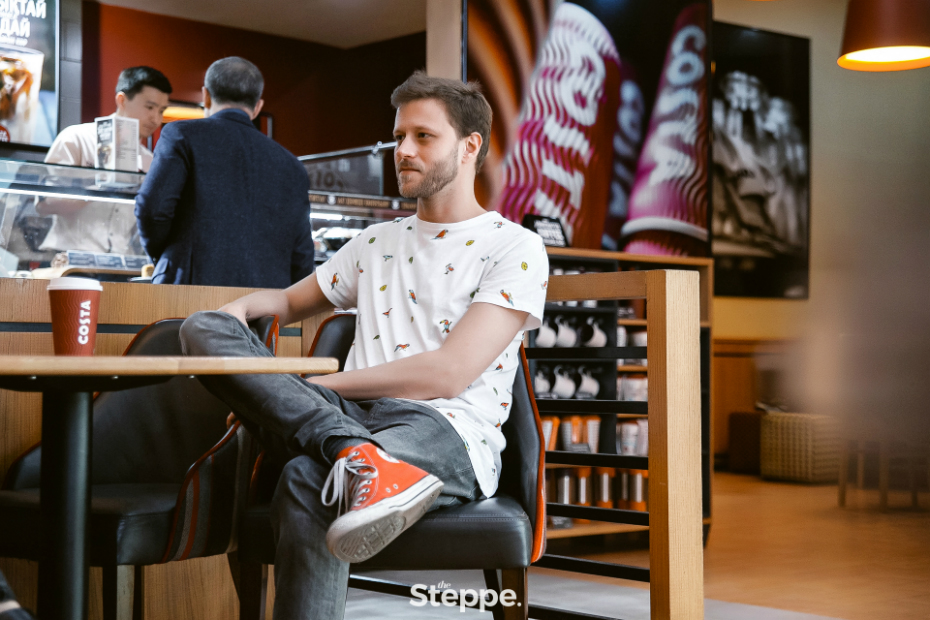
Rhys Williams
32 years old, teacher and musician
I remember this huge line at the immigration control when I first came to Almaty. It reminded me of the grindcore group concert because everyone was pushing each other, trying to get to the beginning of the line.
The next challenge was the taxi. I was surrounded by the taxi drivers that shouted «taxi, taxi, taxi…». It was a huge stress for a foreigner.
My mom is Brazilian, my dad is half-British, and I’m half-welsh. Most of my life I spent in London, I was born there, went to school there. At first, I studied at the University in Lancaster but then went back to London where I met Alisa.
With time our friendship grew into something bigger. She was studying in London with the Bolashak program after which she had to go back to Kazakhstan. It was time to say our goodbyes but then I decided to go with her.
To be honest I haven’t even googled what Almaty looked like before I sat on the plane.
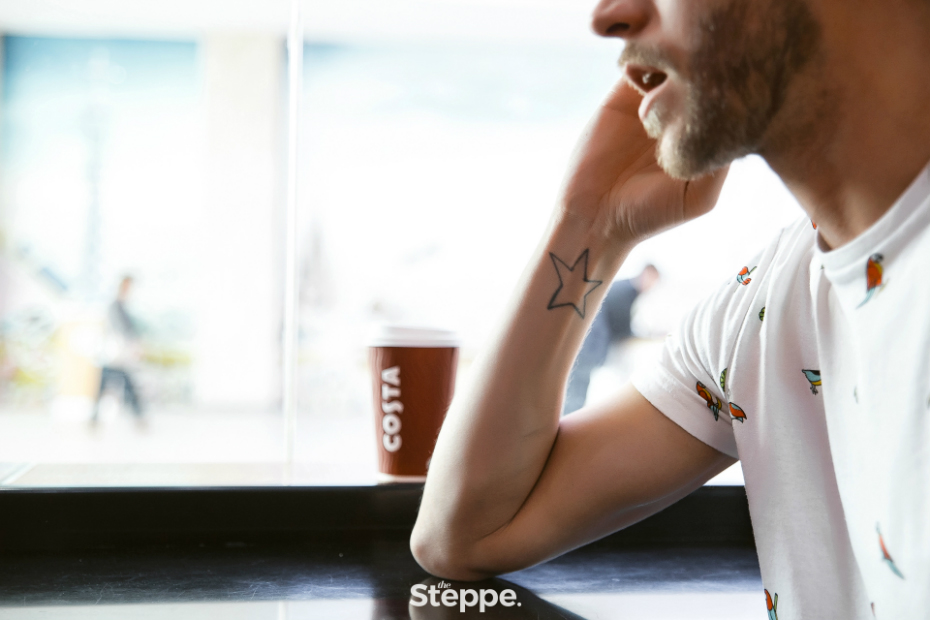
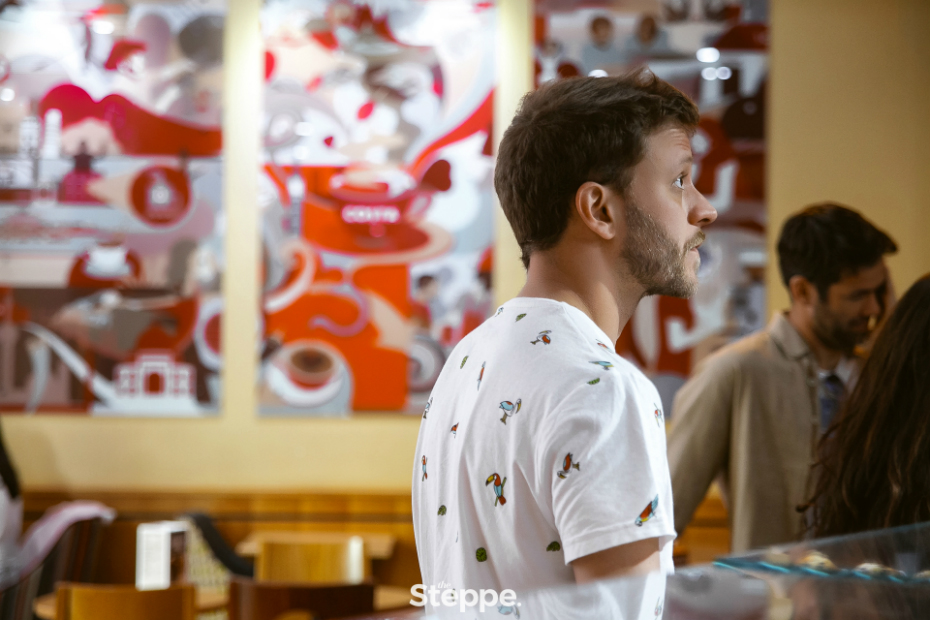
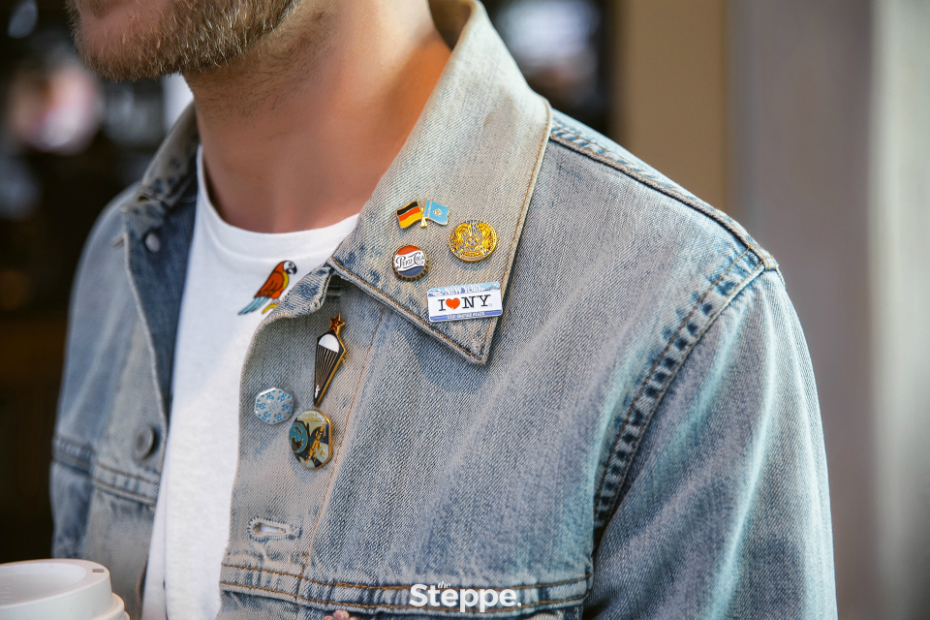
First two months I was trying to comprehend whether I will be able to live in this city. Then I made a CV and had a look at all language schools in the city trying to find a job. So I found it. I began teaching English and French in one center (my mom taught me French and Portuguese). Then as I got more experienced and met new people I began to teach English for corporate clients, until I got an invitation to work in the kindergarten, where I spent four years. I think that working with kids is my calling.
I figured that only elderly or very young women work in local kindergartens. To meet a guy like me working there is a huge rarity, maybe because this job isn’t considered to be prestigious.
I love music so much I literally chose to study it at the university. I have been playing the guitar in a band since I was sixteen to eighteen. It was so cool. We played folk and indie-folk songs. I remember those days, and still write songs, playing the guitar at home, however, I don’t play in public at all anymore.
I like it how locals cherish food here. If you go to a bar in England you usually just drink. Here, everything is different because when you drink beer somewhere you order at least cheese chechil. Kazakhstanis are way more serious when it comes to food, it should always be present in big quantities. To this day I can’t eat «holodec» and can’t get used to the excessive amount of mayonnaise.
The «Oliv’e salad «is literally made of mayonnaise. I almost cry whenever I see how much mayonnaise people use here.
I prefer Uber because gypsy taxis are really hard to catch once the driver sees that you are a foreigner. But if you finally catch one and they learn that you aren’t from here, they start to ask a lot of questions. When taxi drivers learn that I’m from London they always ask how much I earn in Kazakhstan. Here, for whatever reason, they stereotypically think that expats make some crazy sums of money.
When I attended a local wedding for the first time, everything seemed weird to me. The first half of it, we were riding in the city, bride and groom were taking pictures and others were following them while drinking champagne. We passed by the most beautiful sightseeings and then we rode up to the mountains. There we found some area with houses that looked abandoned, bride and groom took the pictures there and we went back to the city. To this day I didn’t understand why this was necessary.
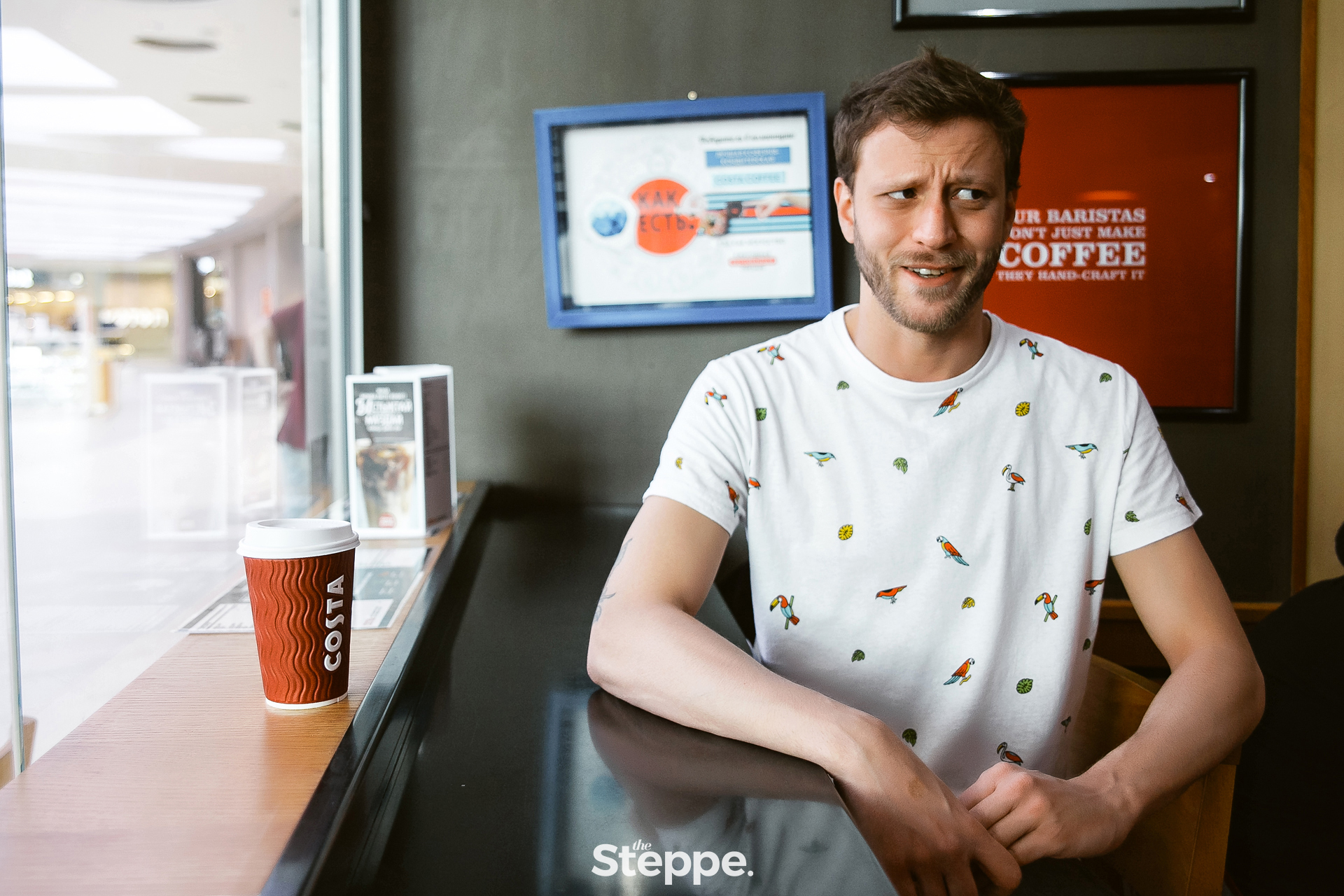
Our wedding went somewhat differently. It was a rainy Tuesday. The morning has traditionally begun from work. During the break, equipped with umbrellas and rubber boots, we met at Timiryazeva-Markova near the registry office, we signed the wedding papers and had a celebratory dinner. There was no time to go somewhere so we drank compote and ate a carrot Korean salad at the nearest «lagmankhana». After the dinner, I went to work and Alisa traveled for a business trip. People always look strangely at me when I share this story. But we are the sociopaths in some way, and we don’t like being in the center of attention, so our wedding wasn’t of the traditional manner.
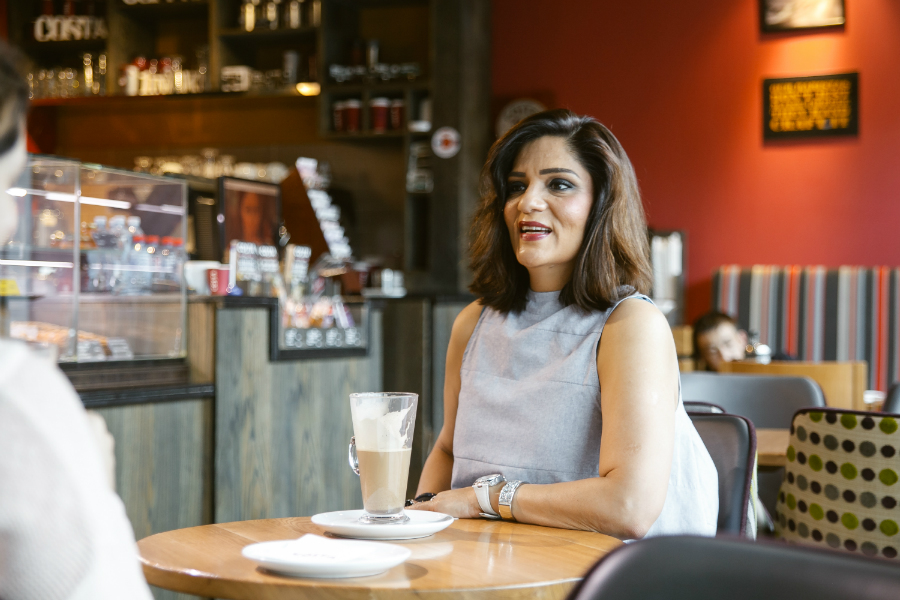
Gurpreet Gareval
51 years old, Business and Economics teacher at Haileybury Almaty
I’m British of Indian descent. My ancestors are from the Northern India, but the generation of my parents moved to Singapore, where I was born and spent my childhood. Then I was sent abroad to a boarding school, after which I graduated from the University of Brunel and the King’s Colledge in London. My husband is British and I got British citizenship in the end of 1980s after I married him.
Before I moved to Almaty, I worked 18 years in the schools of London and was seeking opportunities to work abroad. But I wanted to make sure that my son needs to grow up before I move. When he turned 23, I moved to Almaty for work without any worrying.
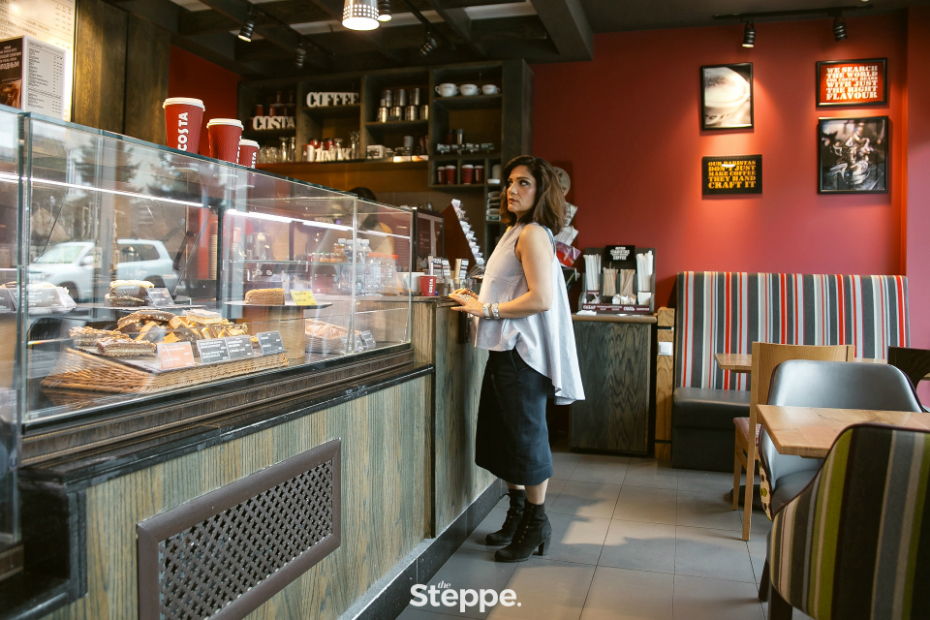
I liked it here immediately, the mountains have conquered me when I was in London and the people who don’t care what religious beliefs you hold and where you are from fascinated me at once. I think they are like this because of the Soviet Union Societal past. In London, we have a lot more conflicts because of religion and ethnicity because we constantly think about terrorism and possible attacks. «People here are so friendly, but for whatever reason, they don’t smile on the streets», I thought at first. I then figured out that that’s because they are more discreet.
I was shocked when I realized that Indian music and cinema are very loved here. Some people ask me about Bollywood, and I know far less than them because I prefer European, Hollywood and South-American pictures.
Once my friend’s sister talked hours and hours about what she knows about Indian actors. She spoke about their age, status, nominees, love life, plans for the future. It seemed as though she knew everything.
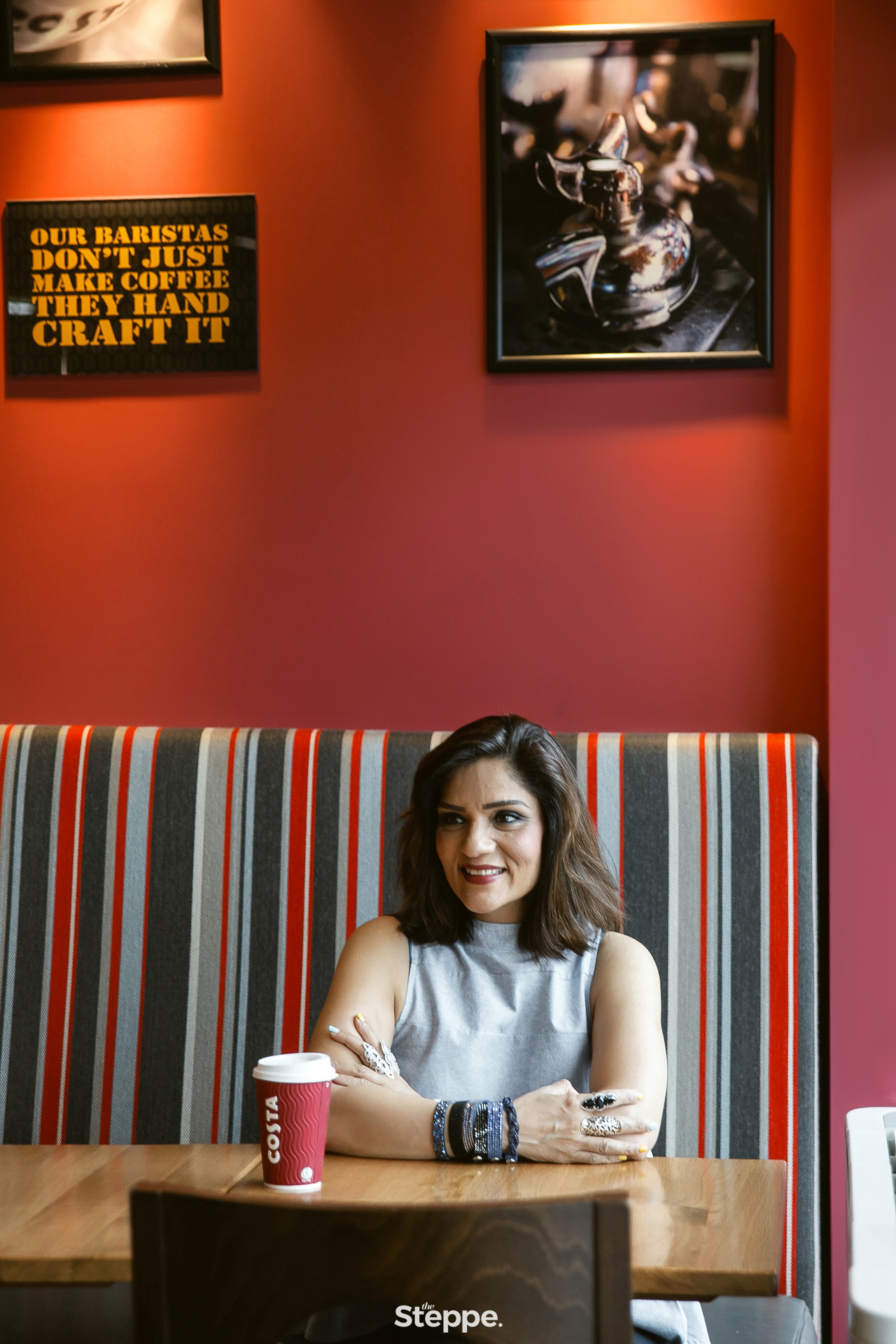 Here, I learned to be less straightforward, because I figured that it isn’t much welcomed here. If you invite someone home and they say that they aren’t sure if they come, it means they won’t. It isn’t really accepted here to be forthright. It is okay to be vague because it is polite.
Here, I learned to be less straightforward, because I figured that it isn’t much welcomed here. If you invite someone home and they say that they aren’t sure if they come, it means they won’t. It isn’t really accepted here to be forthright. It is okay to be vague because it is polite.
Almaty is a very modern and progressive city with many good places and bars, though I didn’t think so while I was googling it from London. Now my whole Facebook page is all about promoting Almaty because I don’t want my friends to have the same stereotypes about the city like I had before I came here.
I also write reviews of local bars and coffee places, because I consider going to a coffee bar as the best time spending. On the weekends, I go out with my friends and we have breakfast in one coffee bar, have dessert in another, have dinner in third and then go and drink our afternoon tea somewhere else.
There is only one thing I like here more than coffee bars, that is the fact that I can catch a taxi just by waving my hand. In London, you can’t drive without a license, and I personally wouldn’t choose it, but in Almaty, it is something natural and now became a part of my life.
I like women in Kazakhstan they always are on top of the game, and you can see that with the way they carry themselves. I relate a lot to them because every morning I wake up one hour early to properly do my makeup, choose my outfit and accessories, and of course to gain some confidence before the long working day.
Kazakhstanis are very modern. They strive for foreign prosperity and the West standards and it’s okay because after they see it all they choose the best and develop it. However, I personally would like to see more of local production. I tend to buy everything of the local origin. I purchase vegetables in small farmer shops and bazaars, not in the supermarkets.
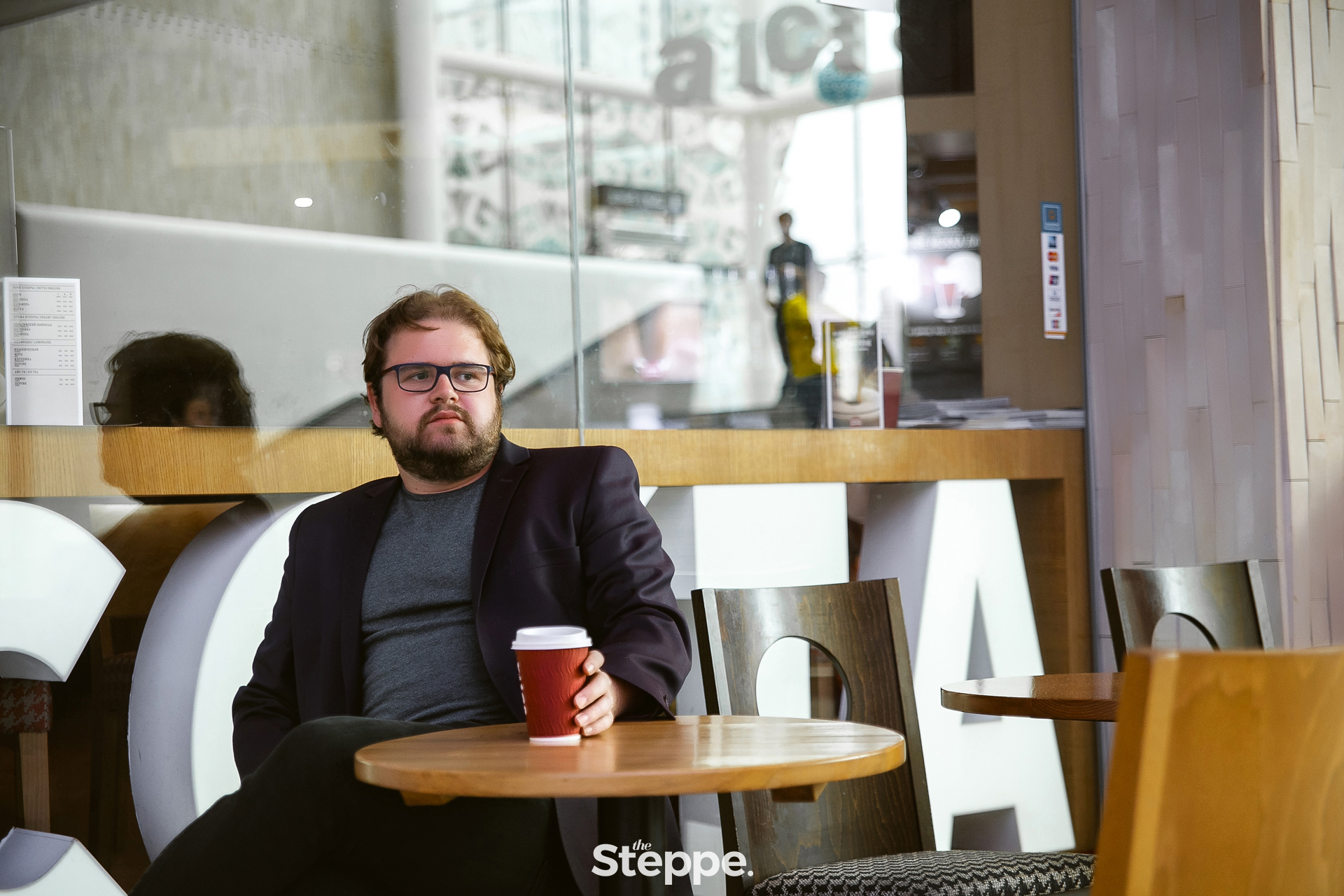
Gideon Wakefield
23 years, Masters student at KIMEP University
I came to Almaty in August of 2016, as an exchange student from Geneva, where I take master’s degree in the field of PR. I have been to Uzbekistan, Kyrgyzstan, Tajikistan before, but I have never been to Kazakhstan. However, I knew that Almaty is the cultural and commercial center of the Central Asia, and it is in a far better state than, say, Tashkent, and Bishkek.
Every student in KIMEP University in which I study now has the focus of their studies. I specify at the post-soviet union countries and Central Asia. I’m the only person out of 160 that picked this direction. Even the students from Russia aren’t willing to study post-soviet union countries.
In my application I wrote that Central Asia used to be the center of the great civilizations with its trade routes, that connected Europe and China.
Taking into account the fact that the routes were terrestrial, it is clear that civilizations began to occur along them. Unfortunately, the marine trade has completely changed the civilization of the world, and countries that are located in the center of the continent began to have less business. I wonder how these countries are dealing with the crisis, that occurred several centuries ago.
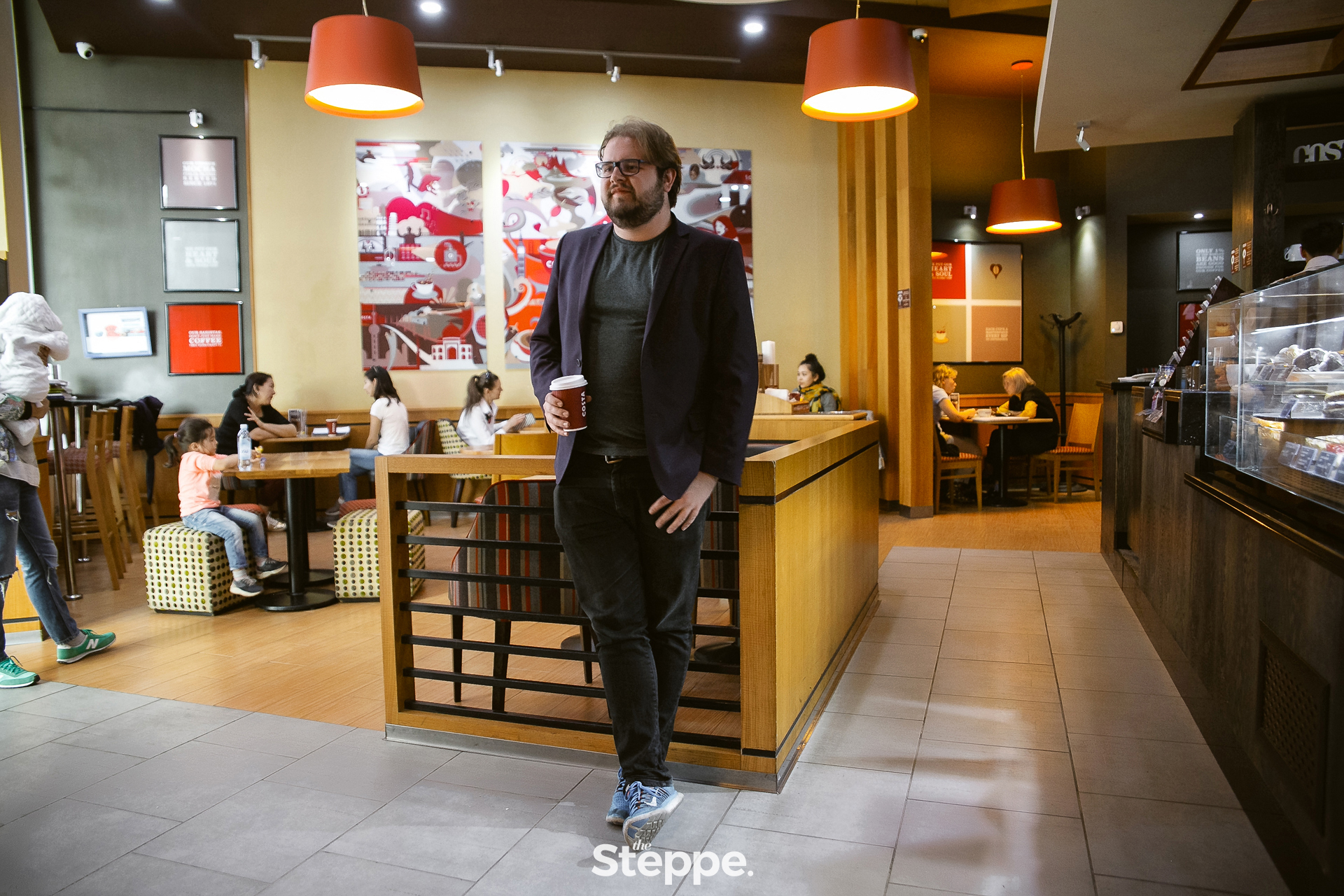
My family is very British. My ancestors have always lived in London. I grew up in Camden, near the park. If my family moves somewhere it usually is within the same area. It is hard to find someone who is more of a Londoner than me.
I think that the gypsy taxi in Almaty is simply genius. I’m thrilled with how convenient it is.I don’t understand why such taxis aren’t a thing somewhere else. I mean, everyone gets their own benefit, the driver gets money fast and for us, it is cheap and quick. If I had a car in Almaty, I would sometimes drive someone somewhere too.
